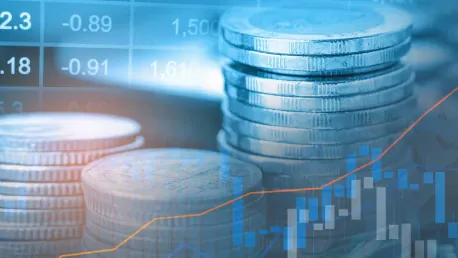Midterm elections in the Philippines, scheduled for May 12, are expected to significantly impact the consumer goods sector and broader economic activities. Analysts from AP Securities, Inc. and Luna Securities, Inc. forecast heightened demand for fast-moving consumer goods and related products due to intensified campaign activities. Companies like Jollibee Foods Corp., Puregold Price Club Inc., Universal Robina Corp., Monde Nissin Corp., San Miguel Food and Beverage, Inc., Century Pacific Food, Inc., RFM Corp., and Emperador, Inc. are poised to benefit from this uptick in demand. Historically, election years have correlated with increased consumer spending, translating to higher earnings for companies in the sector.
Campaign Spending and Economic Activities
Increased Demand for Consumer Goods
The election period, which begins on January 12, with the campaign for national candidates starting on February 11 and for local candidates on March 28, is projected to spur economic activity through substantial campaign spending. This projection is grounded in previous elections, where similar patterns have been observed. Campaign activities generally involve a high volume of spending on various products and services, including food, beverage, transportation, accommodations, and event logistics. These expenditures are anticipated to benefit companies like Jollibee Foods Corp. and Puregold Price Club Inc., among others.
Additionally, the demand for fast-moving consumer goods is expected to rise significantly during this period. Analysts indicate that companies such as Universal Robina Corp., Monde Nissin Corp., and San Miguel Food and Beverage, Inc. will likely see enhanced sales volumes. This increase in consumer goods purchases is attributed to the need for catering during campaign events, distribution of sample products, and higher consumption in general. The collective spending by political parties, candidates, and their supporters thereby injects substantial capital into the economy, creating a ripple effect that supports local businesses and job creation.
Economic Injection Through Diverse Channels
Campaign-related activities are set to further stimulate the economy by increasing power usage and the demand for election-related materials and services, including posters, advertisements, and transportation. These activities generate more jobs and sales for local companies, thus bolstering local economic growth. Additionally, government infrastructure spending is expected to accelerate before a 45-day ban on public works, further fueling economic activities. The anticipation of such spending creates momentum, with public projects and contracts being executed at a faster pace.
Social welfare distributions during the election period also contribute to higher economic activity. These distributions provide additional disposable income to recipients, who then spend on various consumer goods and services. This increase in purchasing power positively affects local businesses, leading to higher sales and revenues. Local economies benefit from this cyclical injection of funds, driving incremental economic growth.
Influence on Market Sentiment and Policy Expectations
Market Reaction to Election Outcomes
Midterm election outcomes have the potential to influence broader market sentiment, impacting investor expectations regarding policy changes such as tax reforms and infrastructure investments. The local stock market is expected to closely monitor election results, which will shape the governance and political landscape for the remainder of President Ferdinand R. Marcos, Jr.’s term. Analysts suggest that a strong performance by Marcos-affiliated candidates could indicate policy continuity and stability, resulting in a positive reaction from the stock market.
For President Marcos to effectively advance his reform agenda, having a solid coalition in both the Senate and the House of Representatives will be essential. This political backing is crucial for passing significant economic bills and initiatives. The results of the midterm elections will, therefore, serve as an indicator of the administration’s ability to implement its policy agenda. Market participants will be particularly attentive to these developments, as the alignment of policy and political forces can have substantial implications for economic stability and growth.
Looking Ahead: Economic and Political Implications
The upcoming midterm elections in the Philippines, set for May 12, are predicted to have a significant effect on the consumer goods sector and broader economic activities. Experts from AP Securities, Inc. and Luna Securities, Inc. anticipate a surge in demand for fast-moving consumer goods and related products, driven by heightened campaign activities. This uptick in demand is expected to benefit companies such as Jollibee Foods Corp., Puregold Price Club Inc., Universal Robina Corp., Monde Nissin Corp., San Miguel Food and Beverage, Inc., Century Pacific Food, Inc., RFM Corp., and Emperador, Inc. Historically, election years have seen a correlation with increased consumer spending, resulting in higher earnings for these companies. As candidates intensify their campaigns, the economic boost is expected to stimulate greater consumer purchases, significantly impacting the retail sector. This election period may, therefore, act as a catalyst for economic growth, with companies reaping the rewards of amplified consumer expenditure.









